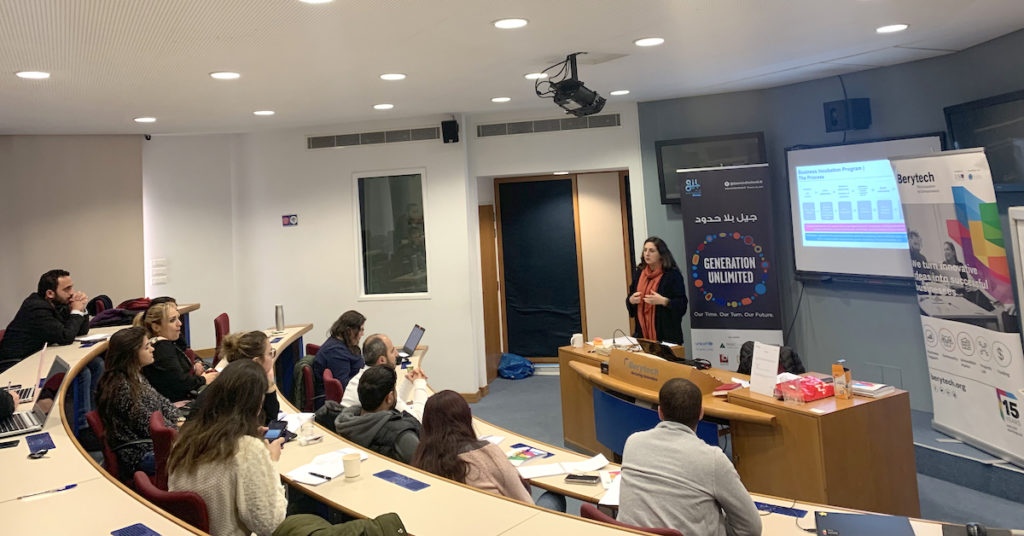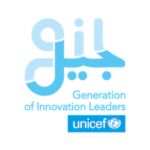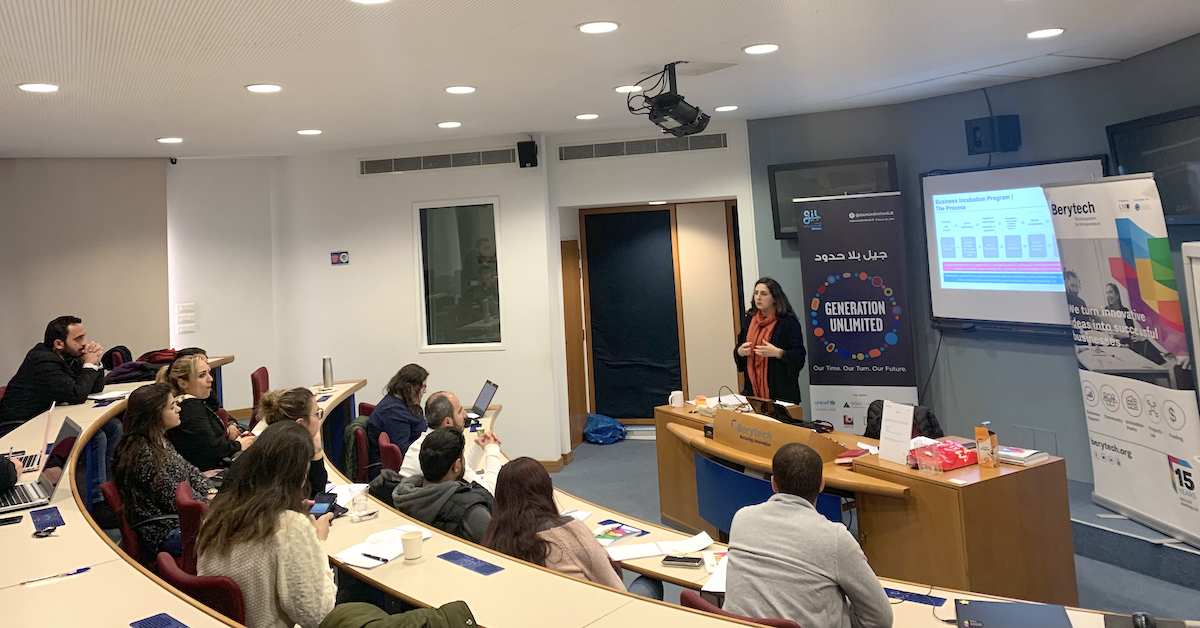
Ecosystem Immersion Workshop
Berytech recently organized a 2-day Ecosystem Immersion workshop in collaboration with UNICEF to train 15 Generation of Innovation Leaders (GIL) program partners who are working on developing the digital and entrepreneurial skills of youth in Lebanon, with the aim to decrease the unemployment rate and increase their accessibility to the knowledge economy.
Representatives from Rural Entrepreneurs, UNRWA, South BIC, the Lebanese Organization for Studies and Training (LOST), Mouvement Social, Akkar Network for Development, and the Lebanese University participated in the workshop to learn about the best practices for fostering a local startup ecosystem, to get exposed to the entrepreneurship world, the digital economy and its key players, and to grow their innovations labs – a development space that gathers like-minded youth to provide them with new opportunities and to develop their skills.
“Working on the pipeline of aspiring entrepreneurs is an essential component of building an entrepreneurship ecosystem. At Berytech, we are very familiar with the GIL program as we were involved initially in the business coaching process when we provided a ‘train the trainer’ component to the coaches on the best practices. It is very important to see that there is a sustainability component in the program and that the centers are looking at ways to sustain their interventions. It proves that the project was much needed to support vulnerable communities in the regions. The two days were very beneficial to see what has happened after 2 years, the labs did achieve a lot and need to find creative ways to make their centers self-sustainable without always having to rely on funding,” explains Joanna Abi Abdallah, Business Development Manager at Berytech.
Best Practices
The first day of the training focused on bringing the major key players of the startup ecosystem to share with the participants their best practices and learnings relative to their field of expertise.
Representatives from Speed,
Aisha Habli, Program Lead at Antwork expressed the great value in addressing entrepreneurial support for economic development, “the real value is when you reach out to the groups that need it the most. Antwork is keen on a decentralized approach to plugging in shared workspaces and connecting them to a grid of opportunities in other central and sector-focused locations. The GIL program is so important to giving vital access to network and opportunity, and it’s wonderful that they are doing that with the ecosystem first movers, and strong network, Berytech.”
“At the Tripoli Entrepreneurs Club, we consider sustainability to be more than about money, it’s about people. We believe each member in the community has a certain value to offer therefore we leverage our human capital as a main asset. The more we grow and empower the community, the more we are amazed by the brilliant entrepreneurs we find. Entrepreneurs look for the right network, and we always strive to be that network,” confirmed Fadi Mikati, Co-Founder & President of Tripoli Entrepreneurs Club.
Entrepreneurial Journey
Following the talks, B.O.T, an impact sourcing platform startup, shared with the participants their story of how they began, and the ecosystem support they have received to reach where they are today to help them understand their whole entrepreneurial journey and the challenges they face even with the support they receive. Charbel stated his opinion on the importance of strengthening the entrepreneurship mindset and building a stronger community saying “Building an Entrepreneurship mindset and creating bonds, cultures and awareness around it leads to bigger conversations, on solving bigger problems, in better, more sustainable ways. The bigger the ripple of the culture, the bigger the tide of future positive results. The ecosystem immersion workshop gave the GIL Partners a chance to work on their action plan to solve the challenges they are facing.”
A speed networking activity then took place between the participants, and members from MakeSense, Speed,
Solving the Challenges
The second day focused on solving the challenges of the innovation labs and on the importance of digital fabrication and the creation of fab labs. The day started with a talk organized by members of Berytech’s agri-food accelerator program Agrytech, sharing their insights on boosting an industry through innovation.
The participants then worked on growing their innovation labs using the business model canvas tool that helped them find ways to attract and grow their audience and partner up with the right key players. The participants then received feedback about their action plan from a team of experts from Berytech. Members of the Berytech fablab made sure to add a digital touch to the day; They gave a talk about the importance of a fablab and digital fabrication in the development of startups and SMEs and then took the participants for a tour to check the FabLab in Berytech Mar Roukoz.
As for Grace Harb – Program Director of Initiation to ICT and Tech for Girls and Marginalized Youth at LLWB, she elaborated on the importance of the training, “Driven by building partnerships and collaborations with various stakeholders, we at LLWB believe that sharing similar goals and addressing socio-economic gaps is crucial to build a strong network and identify potential opportunities. And being one of the GIL lab partners, we understand the importance of the Ecosystem Immersion workshop as it touches our core values at LLWB.”
Harb continued, “The workshop was extremely impactful as lab managers got the chance to interact, communicate and share their knowledge, challenges and best methods. In their strive to empower and equip the youth with the needed skills to enable them with professional readiness and employability, the labs managers are also introducing the youth to a new concept of networking crossing the borders of their communities across all the Lebanese regions through the GIL Lab network. Which also give the youth (beneficiaries) a new perspective of income generating by strengthening their entrepreneurship mindset and exploring new opportunities and collaborations.”
About the GIL program

The GIL program was designed to tackle the high rates of youth unemployment and the inaccessibility of the knowledge economy for the youth population across Lebanon by establishing a network of youth spaces, or Innovation Labs, that act as hubs for Lebanese and non-Lebanese youth to discover new opportunities, network with like-minded people and develop their digital and entrepreneurial skills through various workshops and trainings offered by INJAZ Lebanon, the Nawaya Network and DOT Lebanon – GIL’s Implementing Partners.
GIL is funded by the government of the Kingdom of the Netherlands and the German Embassy of Beirut, with the support of UNICEF Lebanon and in partnership with INJAZ Lebanon, DOT Lebanon, Nawaya, LLWB, UNRWA, the Lebanese Organization for Studies and Training (LOST), Mouvement Social, Akkar Network for Development and the Safadi Foundation.








